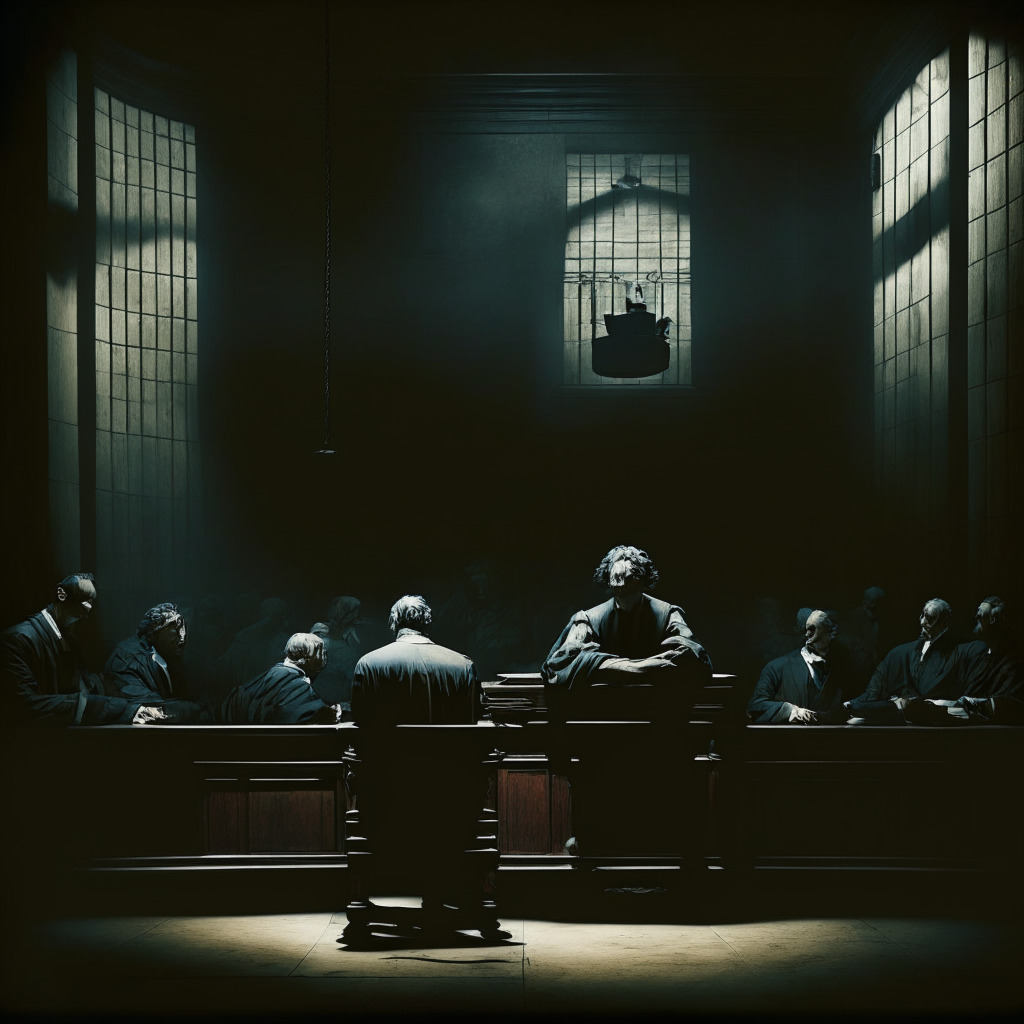On August 25, the legal counsel for Sam Bankman-Fried, former CEO of FTX, petitioned for their client’s temporary release; an attempt to accommodate his right to contribute to the building of his defense. Allegedly, his capacity to participate in his defense has been significantly hampered due to his imprisonment in the Metropolitan Detention Center.
A significant bone of contention lies in the minimal face-time access between Bankman-Fried and his legal team, currently only twice a week. This restricted communication fails to provide sufficient means to conduct the necessary data review. Occurring alongside this logistical bottleneck are additional obstacles including limited cell block access to prior work and collaboration.
Furthermore, lack of power outlets and a short battery-life for laptops decimally limits the time in which he can work. Weak internet connectivity in the center is a further gripe, with less than half of each session featuring functional internet access.
The defense team also highlights a daunting hurdle related to the sheer volume of discovery data involved. The current cumulative data reportedly amounts to terabytes in size, and even this vast figure is predicted to multiply, with millions more pages yet to be provided. Bankman-Fried’s lawyers blasted the Government for dumping an additional 4 million pages of discovery, deemed by them as “unacceptable” in the last six-week stretch before the trial.
So, what’s the proposed solution from the defense? They’ve pleaded for Bankman-Fried’s temporary release. This would allow him to collaborate and access the internet at a designated courthouse workspace five days a week, ensuring active participation in his defense. In case of this appeal being rejected, they urge the Court to let him be present at the proffer rooms at 500 Pearl Street instead.
These efforts underline the defense’s reverence for their client’s Sixth Amendment rights – the right to active participation in his defense and the right to receive effective legal counsel. They state categorically that even if he were out on bail with unlimited time to sift through the documents, he inevitably would not finish reviewing them in time for the trial.
The Department of Justice’s unprecedented discovery productions have also raised eyebrows. The defense has requested that the Court blocks any discovery materials produced after July 1. Their argument? More time is needed for apt review of these materials prior to the trial.
Now, all eyes await the prosecutor’s response to these concerns. With a virtual hearing scheduled for Wednesday at 1:00 p.m. ET to address the discovery challenges, the crypto-world is all geared up for the next development in this high-stakes case.
Source: Cryptonews




